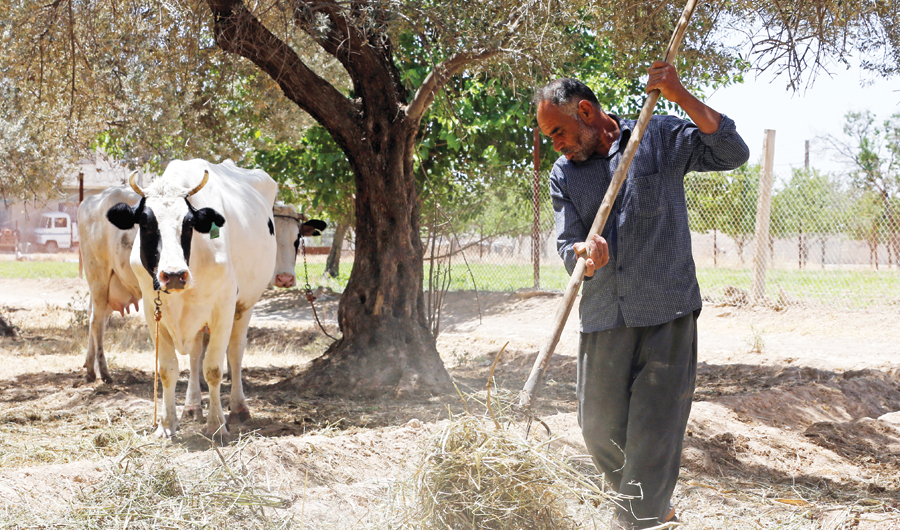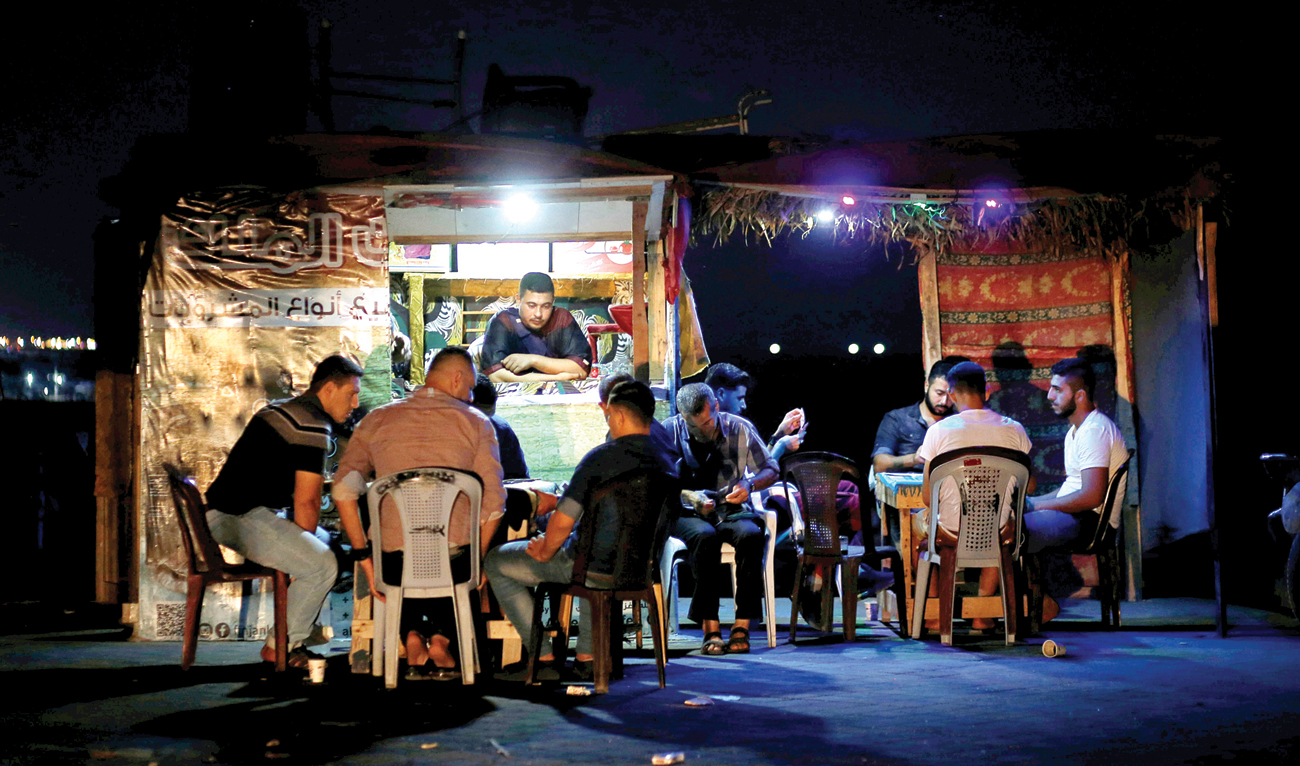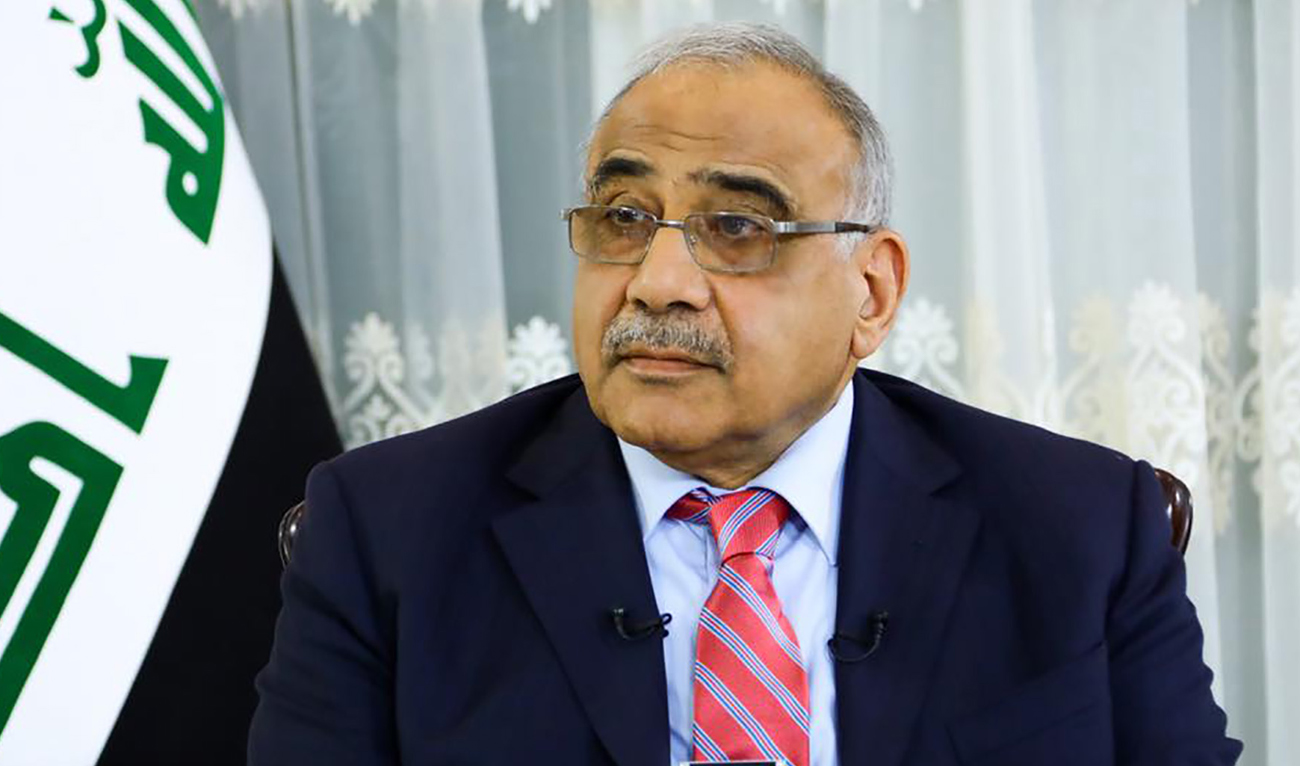BAGHDAD: Iraqi Prime Minister Adel Abdul-Mahdi’s government could be toppled within weeks in the wake of a series of strikes on targets associated with paramilitary groups linked to Iran, sources claim.
Government officials, comman-ders of armed factions and observers told Arab News on Tuesday that recent bomb attacks have embarrassed the premier and robbed him of domestic and international support.
Iraq has seen 18 bombings and two airstrikes over the past three years, most of which have hit warehouses and headquarters of armed factions that have fought Daesh alongside the Iraqi government and which are mostly linked to Iran.
The latest bombings last week targeted three weapons stores near Baghdad belonging to Kata’ib Hezbollah-Iraq, an anti-US and pro-Iranian Shiite militia in Iraq, while a drone hit one of
its headquarters in the border city of Qaim near the Iraqi-Syrian border on Sunday, killing two of its commanders.
Commanders of the Shiite armed factions have accused Israel of carrying out the attacks with US cooperation.
However, the Iraqi government said it did not have enough technical evidence to prove the claims despite acknowledging that the majority of the bombings were deliberate and carried out by external forces.
Last week a number of American officials revealed that Israel was involved in carrying out an attack on a military base north of Baghdad on July 19 which killed three of Kata’ib Hezbollah-Iraq’s leaders, leaving Abdul-Mahdi facing criticism for failure to disclose the results of government investigations into previous similar bombings.
Leaders of the pro-Iranian armed factions have threatened to target US forces and American interests in Iraq as “they provide the required cover for the Israeli side and allow its aircraft to violate Iraqi airspace (which is under full US control).”
Hanine Al-Qadoo, a prominent lawmaker and one of the armed factions’ leaders, told reporters on Tuesday: “The (Iraqi) government is embarrassed. Revealing the results of the investigations (of the bombings) and its leaders, means that the (Iraqi) government has to take action. It has just two options, fight the Zionist entity and cancel the (bilateral security) strategic agreement with Washington.
“So, Washington will force the government to withhold the results of the investigation because it condemns the international coalition which is responsible for protecting Iraqi airspace according to the agreement.”
Iraqi President Barham Salih sought to calm the situation and contain the crisis by holding several meetings with concerned parties, the most recent on Monday in the presence of Abdul-Mahdi, the speaker of Parliament, militia leaders, and Faleh Fayyadh, head of the Popular Mobilization Forces (PMF).
“The recent attacks on the PMF are partly an attempt to drag them and the national defense system away from its continuing important role in eliminating Daesh remnants and eliminating terrorism once and for all,” Salih said in a statement on Monday.
“These attacks are a blatant act of aggression targeting Iraq … and Iraq will take, through the government and all active channels and international and regional organizations, all measures that will deter the aggressors and defend Iraq, its security and sovereignty.”
Iraq said it would file a complaint to the UN Security Council about the “flagrant aggression.”
“Attendees recognized Israel’s responsibility for some of these attacks, but the government wants more time to complete its investigation to obtain sufficient technical evidence to file a complaint at the UN Security Council,” a commander of one of the armed factions who attended Monday’s meeting told Arab News.
“The issue is purely technical, and the results of the investigations presented by Abdul-Mahdi to us proved nothing, so the statements did not name Israel. But everyone agreed to convey a clear message to the international coalition forces in Iraq that they bear responsibility for these violations because the Iraqi airspace is under their control.
“We cannot say that they are complicit because dragging the (Iraqi) armed factions into a battle with them now in Iraq is not in their interest. But they certainly fail to protect Iraqi airspace.”
Iraq has been a direct battleground between the US and Iran since 2003. Both countries are using all their human and technical resources inside Iraq to put more pressure on each other to get some concessions on Iran’s nuclear program.
Controlling the armed factions linked to Iran and preventing their involvement in any armed confrontation with the Americans inside Iraqi territory, is one of the biggest challenges facing the Iraqi government and threatens to undermine its efforts not to align with the parties to the conflict, Iran and America.
US confirmation of Israeli involvement in one of the attacks has given Abdul-Mahdi’s rivals “perfect justification” to attack the government and seek to bring it down.
“All feedbacks that we receive about the performance of the government reflect dissatisfaction at home and abroad,” one of Salih’s senior advisers told Arab News. “The Americans refuse to receive Abdul-Mahdi or deal with him. His allies at home have shaken off around him and are working with the factions and his rivals to start an interrogation campaign at the Parliament for his ministers, which will begin next week to topple them.”
Moqtada Al-Sadr, who controls the largest parliamentary bloc and one of the biggest armed factions, on Monday demanded a further investigation under international supervision before taking any decision.
Salih’s adviser said: “The pressures are very large, and the situation is inflamed and does not bear more procrastination and silence. This issue must be handled wisely before the situation in Iraq explodes.”






